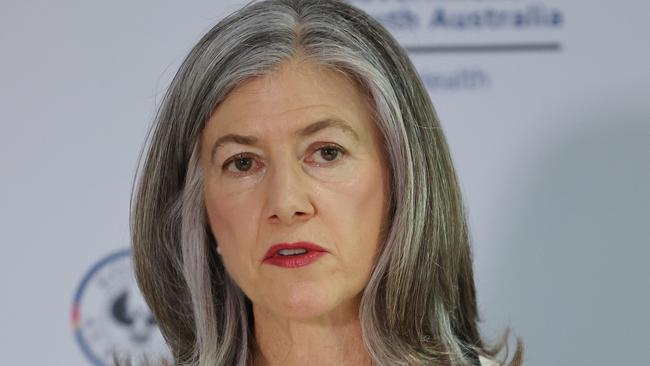Covid ‘under control’ in SA despite emergence of new variant
A new Covid strain that’s caused cause a spike in hospitalisations interstate is in SA, but Professor Nicola Spurrier has reassured South Aussies there’s no need to panic.
SA News
Don't miss out on the headlines from SA News. Followed categories will be added to My News.
Chief public health officer Professor Nicola Spurrier says Covid is “definitely under control” despite the emergence of a new variant called Pirola and sub-variant in South Australia.
She said compared to the start of the pandemic when relatively little was known about the virus, “we now know a lot more, there are excellent vaccines and antivirals.”
While cases numbers have fallen in SA since the last wave’s peak in November, in Victoria they are on the rise.
Pirola is now the dominant strain in Victoria where the seven-day average for hospitalisations as a result of the virus has climbed to 377 over the past couple of weeks, up from an average of 326 in early December.
This is less than the peak levels seen in Victoria’s wave in May-June last year, which brought a seven-day average of 488 hospitalisations.

On Monday, Victoria’s chief health officer Dr Clare Looker warned the rise of Pirola had created a “wave-on-wave” effect as the variant was taking hold just as the state was emerging from a previous wave of the disease.
Speaking on radio FIVEaa after a caller complained about being turned away from a pharmacy after seeking a booster shot more than six months after a previous one, Prof Spurrier said the recommendation for the majority of people was the initial two doses and one booster.
“For the majority that’s enough for reducing hospitalisation and death,” she said.
However, she urged people over 65 or with chronic illnesses to get ongoing booster shots.
“If they haven’t had a booster in at least six months they should get one,” she said.
In other cases, such as people travelling overseas, Prof Spurrier urged them to speak to their GP or pharmacist about their best course of action.
Prof Spurrier noted the virus comes in waves with the most recent one peaking in mid-November, and such waves can be expected every three to four months as community immunity starts to drop.
More than 95 per cent of South Australia’s eligible population has had at least two doses of vaccine.
Prof Spurrier said if people are sick they should stay, home, take a RAT and if positive try not to mix with people and see if they can work from home.





